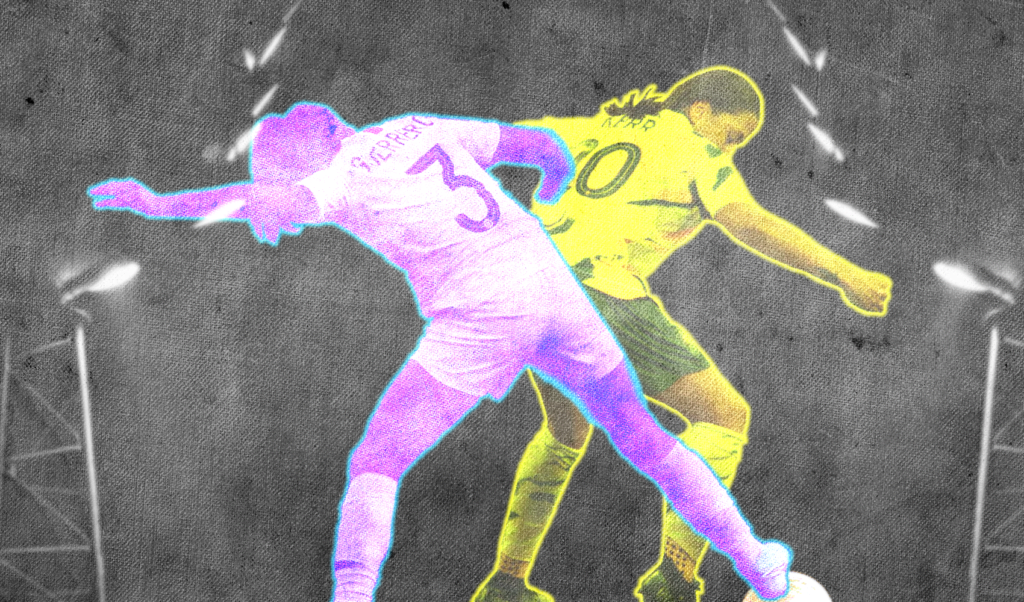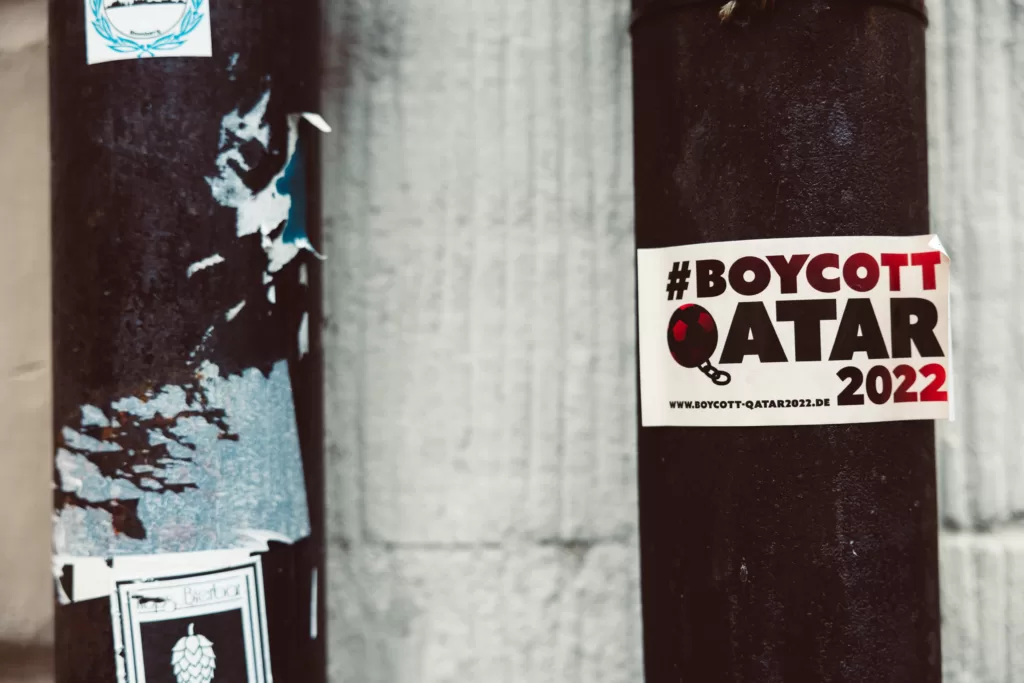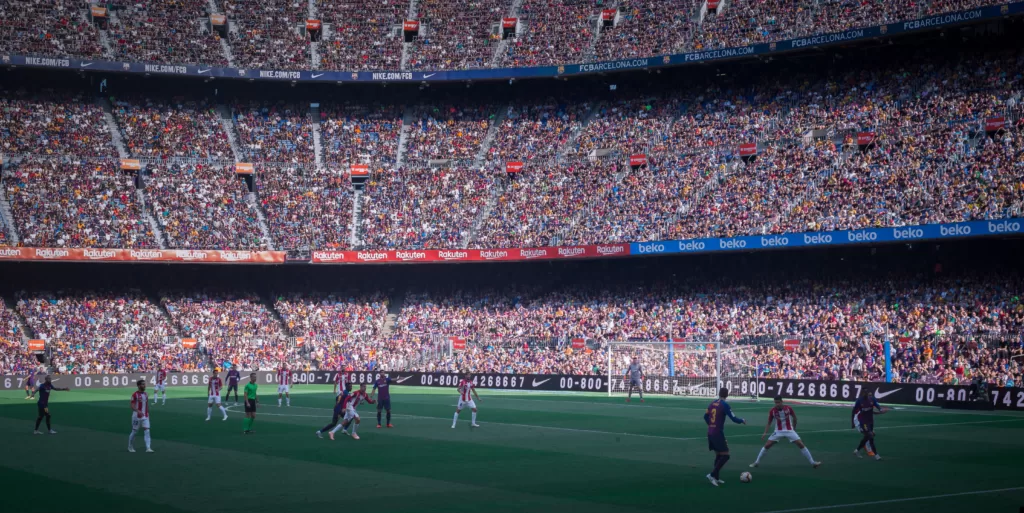Sportswashing's goal is to distract from a nation's dark deeds but it can corrupt the sport in the process.
 Glossy, digitally-enhanced images of sport victories often hide a sad truth of the countries hosting such events. : ‘Messi on laptop’ by Zesan H is available at https://tinyurl.com/2cwujx5v Licence by Unsplash
Glossy, digitally-enhanced images of sport victories often hide a sad truth of the countries hosting such events. : ‘Messi on laptop’ by Zesan H is available at https://tinyurl.com/2cwujx5v Licence by Unsplash
Sportswashing’s goal is to distract from a nation’s dark deeds but it can corrupt the sport in the process.
It’s been described as the “year that sportswashing won”.
Manchester City — owned by Sheikh Mansour through the Abu Dhabi United Group, the investment vehicle for the United Arab Emirates royal family — became the first football club owned by a nation to win the UEFA Champions League. Mansour is vice-president of the UAE. His brother is the president.
City’s win came six months after the 2022 FIFA Men’s World Cup was played in Qatar amid widespread criticism of the country’s human rights record. Shortly afterwards, Cristiano Ronaldo became the first of a conga line of high-profile stars to sign for Saudi Arabian clubs.
These moves were made possible by massive investment from Saudi Arabia’s Public Investment Fund, which also owns English Premier League Club Newcastle United and is controlled by the Saudi Crown Prince Mohammed bin Salman.
This investment has prompted accusations of sportswashing from human rights organisations, due to Saudi Arabia’s use of torture and the death penalty and the denial of freedom of expression and association.
Sportswashing allegations accuse those responsible for serious moral violations of using sport to distract attention away from this wrongdoing. People love sports and that positivity can be gleaned through association to influence a regime’s reputation.
The problem with sportswashing, especially successful sportswashing, is that it also corrupts the sports involved.
Sportswashing is generally engaged in by states or regimes. With Qatar and Saudi Arabia, both are accused of trying to use the positive associations that people have with football to diminish their responsibility for human rights violations.
Qatar can expect an emotionally laden image of Lionel Messi hoisting the World Cup trophy while wearing a bisht, a traditional Arab robe, to overwhelm the emotionally fraught image of abused and exploited migrant labourers in a global audience’s thinking about the country.
And Saudi Arabia may hope that soon it will be closely linked in popular imagination with all the excitement and fondness elicited by elite boxing, glamorous global football stars, and the world’s best golfers rather than, for example, the murder of journalist Jamal Khashoggi.
It is not only Qatar and Saudi Arabia that can be accused of sportswashing.
The 2018 World Cup in Vladimir Putin’s Russia could be viewed as a case of sportswashing. Further back, the 1934 World Cup hosted in Italy during Benito Mussolini’s reign and the 1936 Berlin Olympics in Nazi Germany can both be seen as sportswashing.
Each accusation must be judged on its merits to determine whether the regime involved has engaged in major wrongdoing and is attempting to use sport to distract attention from this.
The most important and obvious problem with sportswashing is that when successful it enables countries to continue engaging in human rights abuses without facing any reputational damage.
But this is not all. Sportswashing also damages the sport itself, together with all those who participate in it.
It does so by making those involved in sports complicit in the state’s human rights abuses. This does not mean that players, fans, journalists and others involved in sports are actually violating human rights themselves.
But when sportswashing succeeds it does so in part because of the contributions people in all those roles make.
The unbelievably compelling World Cup final, played so well by so many stars, the indelible image of Messi in a bisht, and the fervour of fans around the world following every twist in the narrative – this is why the event is attractive for sportswashing purposes, and the complicity it creates is shared far and wide.
Put to these purposes, the value of sport itself is corrupted – it’s no longer just a contest of skill, wit and determination, but also something quite distinct – an exercise in diminishing moral accountability.
These issues present the difficult question of how those involved in sports should respond to sportswashing.
One extreme option is a boycott. This response received wide coverage in the run-up to the 2022 World Cup, when German football fans in particular called for a general fan boycott of the games.
Had this boycott received widespread uptake amongst fans, journalists and perhaps even players, then it could have made a powerful statement.
But boycotts ask a lot of participants.
For players and journalists, it could have meant missing out on the most important moments of their careers, while for many fans the World Cup is the highlight of the football calendar.
Alternatively, there are ways of remaining engaged while counteracting sportswashing. Fan groups such as Newcastle United Fans Against Sportswashing conduct a range of campaigning activities against the Saudi ownership of their club.
For some fans, this means refusing to renew their season ticket, while others continue to go to matches but transform the way they support the club. These fans may attend games but bring banners of protest along with them.
They write letters to football governing bodies and politicians calling for a ban on the state ownership of football clubs. They continue to raise awareness of the human rights abuses by the Saudi regime, using attention on the club to motivate enhanced scrutiny and effect positive change rather than allowing the sport to diminish responsibility.
We may hope that small successes here can accumulate and help reclaim sport’s potential as a force for good.
Alfred Archer is Associate Professor of Philosophy, School of Humanities and Digital Sciences, Tilburg University, Netherlands and Kyle Fruh is Assistant Professor of Philosophy, Duke Kunshan University, China. This article was co-authored together with Jake Wojtowicz, an independent scholar. They declare no conflict of interest.
Originally published under Creative Commons by 360info™.











